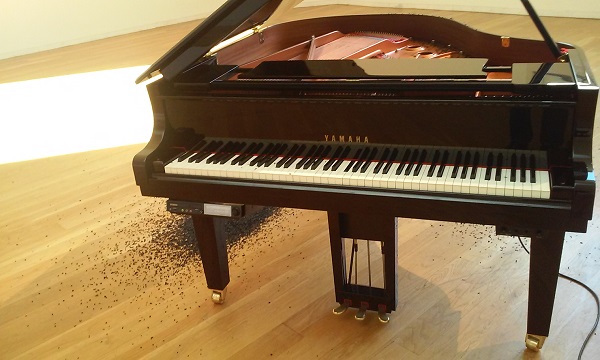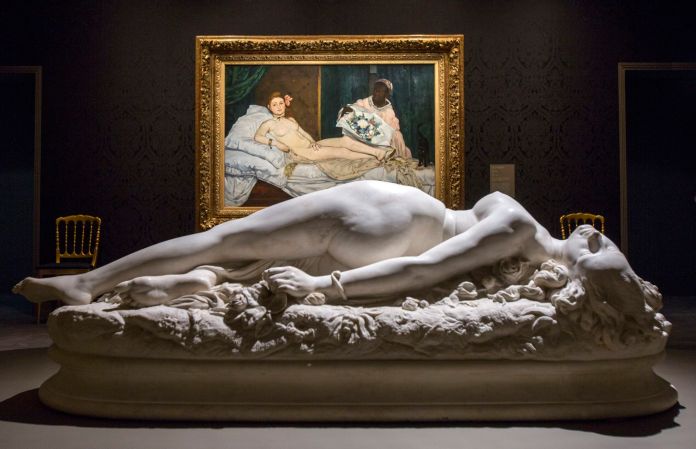
Liam Gillick, Factories in the Snow, Serralves Museum
A large room, flooded by light on the day of my visit. A black Yamaha baby grand piano in the middle, isolated: no bench, no pianist. On the floor, some black dust: was the piano planed down, was its varnish grated, is the dust made of shavings? A melody plays by itself: a vaguely familiar air, obviously played as if by a beginner. Then, after a slow walk down the long access ramp, a closer look: the piano keys are automatically pressed and released, one by one, and, in fact, there is an electronic control unit that commands it all. The –presumed– artificial black snow on the floor does not melt, the –supposed– pianist is not here. As for the audible melody, it is a clumsy interpretation of an emblematic tune of the last European revolution, which took place here, in Portugal: the end of an era, the end of a great hope (even if the air is still sung in Portugal: the government is sometimes “Grandoled”). And, to boot, a lozenge of light on the wood floor, and a pretty, smiling museum guard. Continue reading
